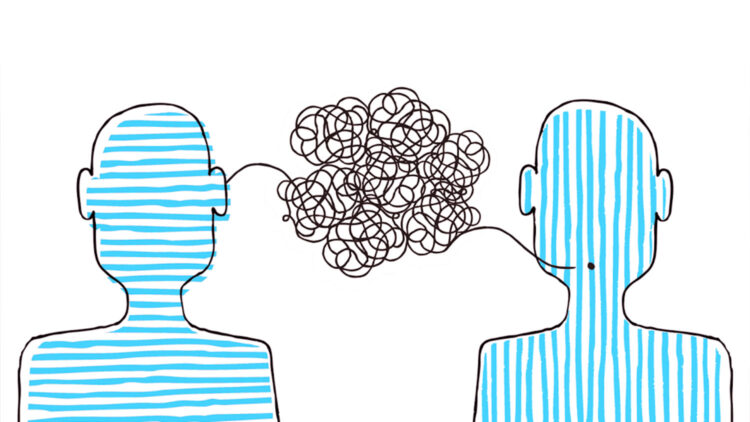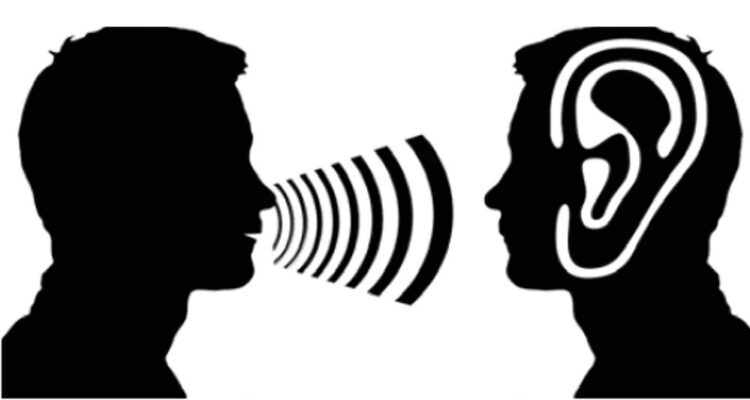Effective communication has always been one of the greatest personality traits that have allowed people to make a difference and stand out from the crowd. The art of communication makes struggles easier for competent folks.
If you want to make it big in life, make sure that you hone up the way you communicate with others. This blog is dedicated to all the students who get the jitters by the mere thought of discussions, presentations, debates, and doubt-clearing sessions. Scroll down to know how you can improve your communication skills.
Page Contents
Significance of Enhanced Communication Skills for Students

Source: smallbusinessify.com
You may not believe us, but the truth is a huge chunk of your academic success is dependent on your ability to communicate with others. If you are not vocal and expressive regarding your thoughts and opinions, it is very easy to lag behind your peers.
When unable to come up with apt commentaries on time, students often feel withdrawn or become emotionally overwhelmed. They often find it hard to answer a question because of the lack of communication skills. This may leave a negative impression on the teacher.
Written communication skills are also necessary. Students should be able to put together their arguments and ideas on paper to ensure good academic performance. Students often ask an expert to domyessay when their written communication is weak. Once you master written communication, you can become an essay helper and earn a decent side income.
Thus, effective communication skills can bring multiple benefits to a student:
- improved self-esteem;
- boosted morale and confidence;
- academic recognition;
- better body language.
Why Do Students Struggle to Communicate Clearly?
There can be multiple reasons behind this issue among students. Let’s explore some of them.
Excessive Reliance on Devices

Source: propy.com
Students nowadays spend most of their time using different devices. They prefer smartphones, laptops, iPods, etc., for different purposes like studying, playing games, and listening to music.
Even for talking to near and dear ones, these tech-savvy individuals prefer text messages over calls. Thus, somewhere between the emojis and abbreviated words, they lose their ability to speak their heart out. Real human conversations have become rare among students in modern times.
A Traumatic Childhood
Unfortunately, some students go through disturbing childhoods. The trauma to which they have been subjected can affect their ability to open up and express themselves to a great extent. More often than not, such students prefer building a wall around them. They never have the guts to speak up in front of the class, for some memories from the past must have shattered their confidence.
Speech Disorders

Source: dailyexcelsior.com
Some students avoid communicating at all costs because of speech disorders. Stammering issues are quite common, and such individuals often avoid mixing up and communicating with others. They fear being ridiculed or mocked by peers and outsiders.
7 Tips to Improve Your Communication Skills
1. Use Movies to Learn Communication

Source: ewm.swiss
While you are binge-watching, try focusing on the dialogues and the body language of the actors. Try copying the dialogue delivery style of your favorite actor. If you are not into movies so much, you can read a fiction novel, take after your favorite character, and try to embody their dialogues, assuming how they would speak.
2. Talk to Yourself in Front of A Mirror
Practice the dialogues in front of a mirror. Notice your expressions and the ability to look into your own eyes. Consider this as an exercise and devote half an hour daily to this. You can even share your deepest desires, secrets, and wishes with yourself in front of the mirror.
3. Read Something Aloud Every Day

Source: lifehack.org
Choose any newspaper or book and select your favorite article. Make sure that the topic is of interest. Read the paragraphs aloud and focus on the pauses. Pay attention to your tone and try to sound as normal as possible.
4. Practice in Group Discussions
Do you have some close friends who suffer from the same issue? Form a group and start discussing any familiar topic regularly. Feel free to oppose or go in favor of the motion.
5. Be an Active Listener

Source: medium.com
To communicate clearly, you should listen attentively. Stay focused whenever someone in front of you is speaking. Being an active listener will always help you revert better with well-compiled and logical answers.
6. Work on Building a Vocabulary
While watching your favorite shows or reading something, try to be mindful of the vocabulary one uses. When you come across words that you don’t know the meaning of, skim through the dictionary and try using them in your sentence.
Make this a regular habit, and soon you will have a robust vocabulary. Don’t just put the book with difficult vocabulary aside. Instead, take up the challenge to finish it with utmost understanding.

Source: inc.com
Even though you feel nervous, step up and share your thoughts in a discussion in the classroom. Know that you are losing countless valuable opportunities just because of holding back when there’s a chance to face your fears.
Concluding Thoughts
The ability to express yourself effectively can help you in the long run. With impressive communication skills, cracking interviews and business deals gets quite easy. Your oratory skills will serve as your best friend when you put your point in front of others.
The earlier you start polishing your communication skills, the better results you get in the future. Use these tips regularly, and soon you will notice positive changes.





